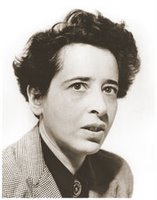

An interesting
post on AlterNet by the folks from the
Southern Poverty Law Center on Patrick Buchanan's most recent book "State of Emergency: The Third World Invasion and Conquest of America" raises the question: if this work is blatantly racist, what explains its steady hold on the New York Times Bestseller List?
Buchanan seems to dismiss the idea (that is central to other more nativist works that have treated the subject of Latino/a immigration to the United States, such as that of
Samuel Huntington) that the United States is a society built around certain ideals of democracy, freedom, rights--what is called by sociologist
Gunnar Myrdal as
"the American Creed". Buchanan writes: "This idea of America as a creedal nation bound together not by 'blood or birth or soil' but by 'ideals' that must be taught and learned ... is demonstrably false." He locates the threat to the U.S. not in people who may not uphold the Creed, but in people who are simply not of European descent. Its worth repeating the claims he makes in the book as posted by AlterNet:
Excerpts from "State of Emergency, The Third World Invasion and Conquest of America":
"Our ancestors were not paralyzed by guilt. Confident in their culture and civilization, they believed in their superiority over what Kipling had called the 'lesser breeds without the law.'"
"Was not Western civilization vastly superior to the indigenous civilizations it encountered and crushed, from the Aztecs and Incas in the Americas to the Muslim, Hindu, Buddhist, Taoist civilizations from Africa to the Far East?"
"Against the will of the vast majority of Americans, America is being transformed ... we are witness to one of the greatest tragedies in human history."
"Though the South remained segregated [before the Civil Rights movement], culturally, we were one."
"California is becoming -- indeed, has become -- a Third World state."
"Thus the world's finest five-star hotel, the United States of America, becomes the flophouse for the planet."
"Since Americans of European descent -- unlike Germans -- are not into sackcloth-and-ashes, but take immense pride in their ancestor's achievements and bridle at reverse discrimination, it is hard to see a happy future of peace and reconciliation [if white guilt continues]."
"This idea of America as a creedal nation bound together not by 'blood or birth or soil' but by 'ideals' that must be taught and learned ... is demonstrably false."
"America faces an existential crisis. If we do not get control of our borders, by 2050 Americans of European descent will be a minority in the nation their ancestors created and built."
"A new border war has begun with the first signs of an 'intifada' to retake control of the Southwest."
I certainly don't recommend evaluating a book by looking at quotes taken out of context, but Buchanan does have a history of seeing complex political and economic issues in terms of a grand culture war between European societies and the "rest of the world." On the one hand, this is problematic because he does not explain very well what the "West" is; nor does he recognize the enormous diversity of cultures and ideals within Europe that make it difficult to think of it speaking in one voice.
On the other hand, I want to ask: what is it about this discussion that taps into the imaginations and feelings of vulnerability of so many Americans, making this book popular? The thread of comments on the AlterNet post is very interesting--many people wrote in to say "Ignore Buchanan's obvious racism, but don't dismiss the idea that immigration IS harming the American middle class in serious ways."
A very important work that came out recently is
"The New Rural Poverty" and it does a very good job of laying out the policy proposals around immigration and the extent of the poverty surrounding immigrant communities in the United States. I found some claims made at the end of the book very eye opening. Many people argue that immigrant labor allows middle class Americans to have cheap food and that without it a lot of fruit and vegetables would become luxury items.
The authors point out that the percentage of the average family's income spent on fresh produce is actually very small (a sad commentary on our diets) and that raising wages for farm workers would not substantially increase food costs for American families. Raising wages would raise costs for growers, however, who would stand to see their portion of profit and the worth of their land decrease. At the same time, many growers resist mechanizing farm work because of cost. The result is the reliance on a relatively cheap labor force that is at the same time deepening poverty in rural areas--and that does come back as a problem for the middle class in terms of burdens on the social safety net. But its unlikely that a conversation can get started on this level with the kind of ahistorical, apolitical vocabulary injected into the public sphere by people such Buchanan.
Labels: american democracy, diversity, immigration






